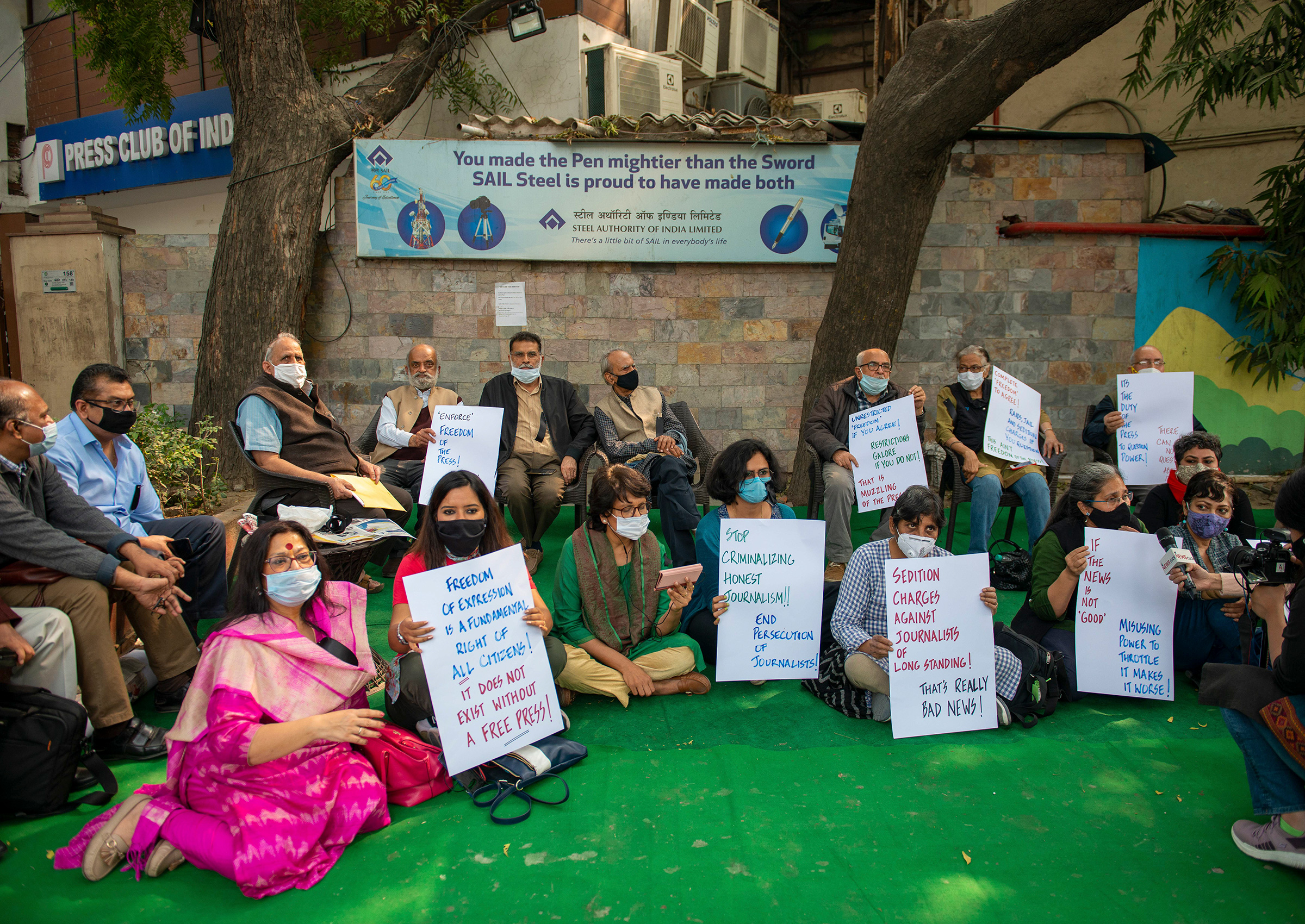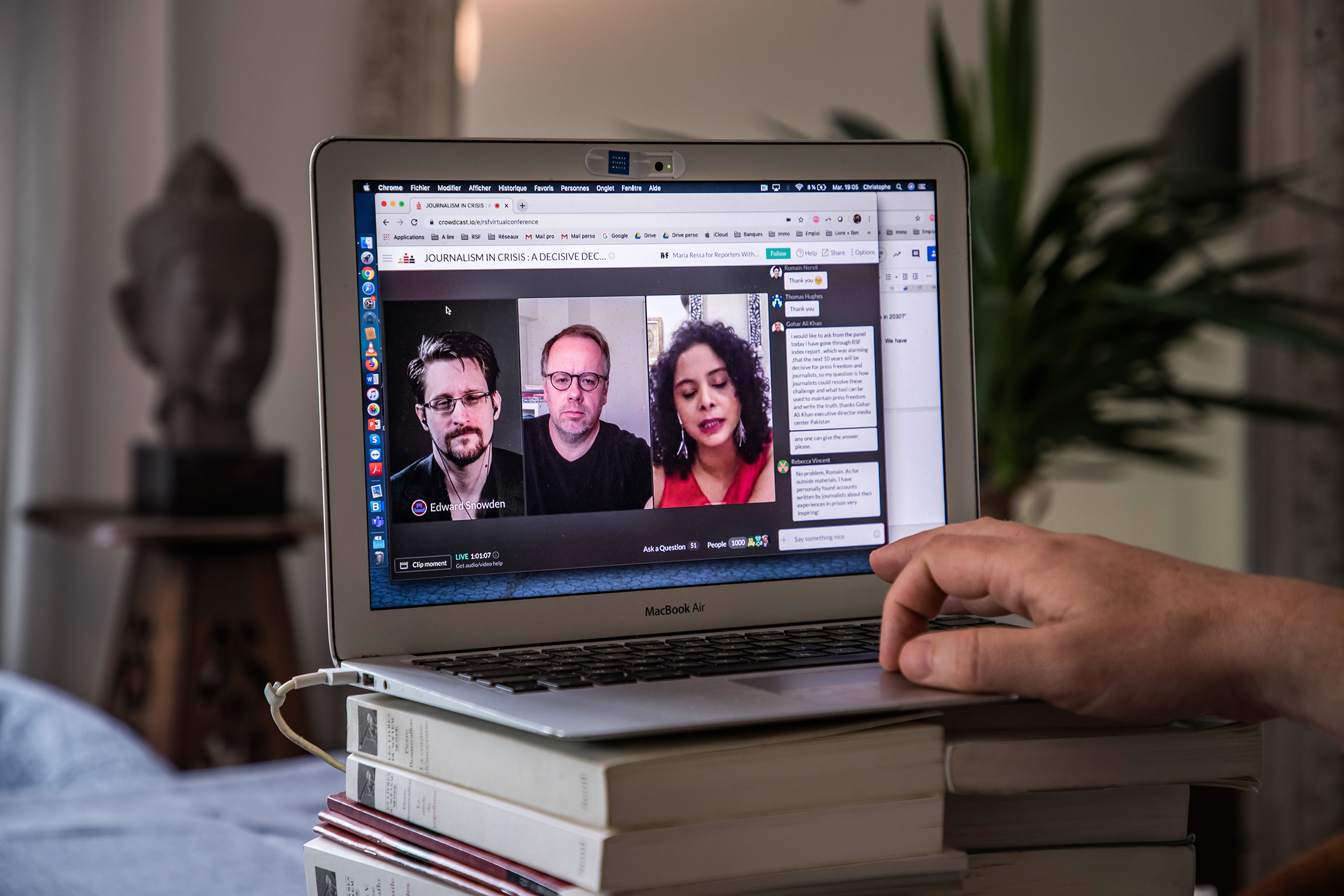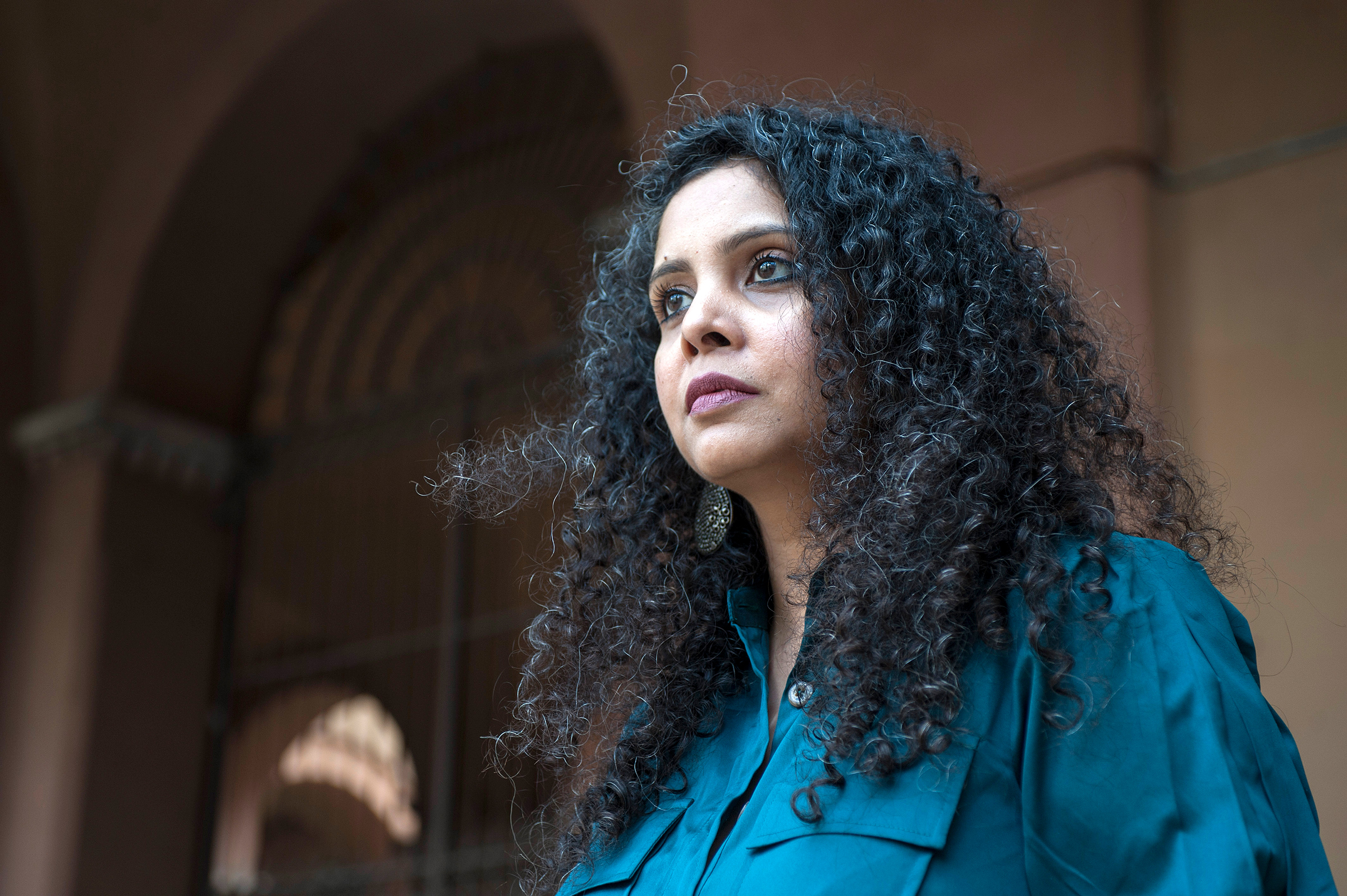For the last several months, every time Rana Ayyub’s phone or doorbell rings, she has felt a pang of fear. Could this be the day the Indian government finally throws her in prison—or worse?
In early October, Ayyub was rushed to the hospital in the middle of the night with a suspected heart attack. She remembers screaming to doctors in her hospital bed: “I’m dying.” The scare turned out to be a palpitation, and she was prescribed blood pressure medication. “It happened because I was fearful of my life,” Ayyub, 37, says in a phone interview with TIME two weeks later. “I was just tired of this existence.”
Read More: The Indian Government Is Silencing Critics Even As Its COVID-19 Crisis Surges
Ayyub is one of India’s most famous journalists, and a thorn in the side of the government of Prime Minister Narendra Modi. She rose to prominence after she self-published Gujarat Files, a 2016 book about the 2002 violence in the state of Gujarat that left at least 790 Muslims and 254 Hindus dead. Ayyub’s work accused Modi, then chief minister of Gujarat, and his allies of being complicit in the anti-Muslim violence and included undercover audio recordings of politicians in India’s now-ruling Bharatiya Janata Party. (Modi has never been formally charged and has said his government used its “full strength” to “do the right thing.”) Since then, Ayyub has struggled to find editors at mainstream Indian publications willing to publish her work. This summer, she joined the American newsletter platform her Substack. She also writes a regular column for the Washington Post, and has occasionally written for TIME, including a TIME cover story in April highlighting the Modi government’s mismanagement of the country’s devastating second wave of COVID-19. And for the past several months, she has endured an escalating campaign of intimidation from Indian authorities and supporters of the ruling party.

“Of all the cases of journalists we work on around the world, at the moment Rana is one of my top concerns,” says Rebecca Vincent, the director of international campaigns at rights group Reporters Without Borders (RSF). “The hate she’s facing has been escalating for years but it’s so intense at the moment. We have a history of journalists being killed with impunity in India, and frankly it’s very possible that could be repeated. When I receive urgent calls from Rana, my immediate instinct is concern for her life.” The Indian government should know, Vincent says, that the world’s eyes are watching out for Ayyub’s safety. “If something happens to her, it will be very obvious where it came from and why,” she says.
Although India is often called the world’s largest democracy, U.S.-based nonprofit Freedom House downgraded India from “free” to “partly free” in March, citing a decline in civil liberties since Modi came to power in 2014, including the intimidation of journalists and activists. Independent journalists, especially women, face particularly intense harassment, abuse and rape threats. In 2017, prominent journalist Gauri Lankesh, known for her outspoken criticism of the Hindu nationalist government, was shot dead in Bangalore. RSF notes that India “is one of the world’s most dangerous countries for journalists trying to do their job properly” and the group’s annual World Press Freedom Index ranks India at 142 out of 180 countries. Modi’s government set up a committee in 2020 to improve India’s ranking; the committee said in March that the RSF methodology lacked transparency and identified a “Western bias” in the index. (India’s Ministry of Information and Broadcasting did not reply to a request for comment.)
Ayyub is used to living on the edge. In 2018, for example, BJP supporters shared on social media a pornographic video doctored to include Ayyub’s face in an attempt to discredit her. For more than four years, she has received a barrage of anonymous death and rape threats on her social media. But for the last several months, she has been the victim of a campaign of intimidation by Indian authorities that has taken even her by surprise. In June, the Uttar Pradesh police opened an investigation into Ayyub and other Muslim journalists after they tweeted a video showing a violent attack against a Muslim man. Police and government officials said the man’s claim was faked and police accused Ayyub and several others of attempting to “create animosity between Hindus and Muslims,” saying they did “not make an attempt to establish truth in the case.” In a statement at the time, the Uttar Pradesh government said it placed “absolute sanctity to rule of law, civil liberties and freedom of expression” and the investigation was not lodged “due to any witch-hunt.”
In June, the central government’s Income Tax Department sent Ayyub a summons, investigating her income in relation to her fundraising for COVID-19. (During the height of India’s pandemic earlier this spring, she traveled the country distributing humanitarian aid that she had raised funds for via her online following.) Shortly after, the Enforcement Directorate began investigating Ayyub’s foreign sources of income. Ayyub describes the accusations as baseless. She says she has been followed in the street by mysterious cars, and that she has been forced to disclose to authorities confidential information and emails, including with her editors. On Sept. 27, she filed an appeal against the Income Tax Department, where her case is pending. (The department did not respond to TIME’s request for comment.)

After an experience being tailed by an unknown car for 90 minutes in Mumbai, Ayyub wrote a letter for one of her family members to publish in the event of her death. “It just says that in case anything happens to me, I don’t want you to let my death go in vain,” she says. “I want the future generation of journalists, writers, activists to know that even if my life is short-lived, it’s a fight worth fighting. While I’m alive, I’ll keep speaking.”
Press freedom is under growing threat around the world. In October, the Nobel Committee awarded the 2021 Nobel Peace Prize to journalists Maria Ressa of the Philippines and Dmitry Muratov of Russia, editors-in-chief of independent publications who have each faced state-sanctioned intimidation for daring to stand up to authoritarian regimes. Ayyub has spoken to Ressa and gathers strength from knowing that others like her are going through similar trials. She welcomes the recognition for Ressa and Muratov, and sees parallels between their countries and India. (The Philippines is ranked at 138 on the World Press Freedom Index, while Russia is at 150.) “It has given so many of us the courage to fight,” she says of the Nobel Peace Prize going to embattled journalists. “It felt like it was for each one of us.”
But Ayyub is no editor-in-chief. She is a single journalist working mostly alone, without institutional support, and largely for international publications. This makes her particularly vulnerable, but also more determined. “If anything, what they are doing to me has made me realize that my words count, and they are having an impact,” she says.
After Ayyub’s heart scare in early October, her 75-year-old father suggested the family leave the country. His daughter refused. “I love this country more than I can ever explain,” she told TIME. “If I hated it, I would have left a long time ago. Our forefathers, our freedom fighters, fought the British to give us this independent India, this grand idea of a democracy. And I’m fighting for this very idea.”
More Must-Reads from TIME
- Cybersecurity Experts Are Sounding the Alarm on DOGE
- Meet the 2025 Women of the Year
- The Harsh Truth About Disability Inclusion
- Why Do More Young Adults Have Cancer?
- Colman Domingo Leads With Radical Love
- How to Get Better at Doing Things Alone
- Michelle Zauner Stares Down the Darkness
Write to Billy Perrigo at billy.perrigo@time.com
